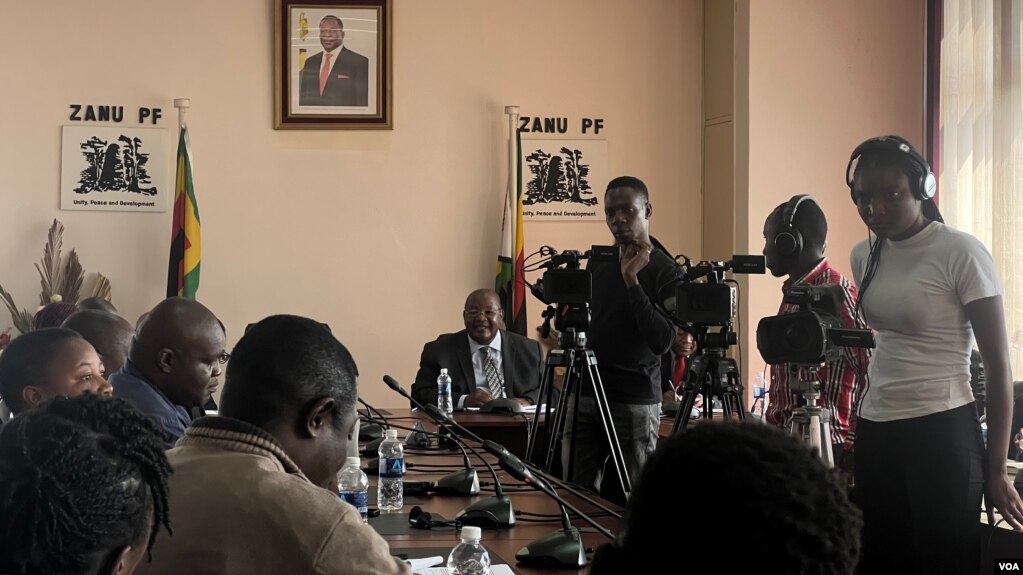
Borrowing a strategy successfully tried in Lesotho, Zimbabwean journalists met with top officials of the ruling Zanu-PF party this week to try to reach mutual understandings before campaigning starts. The journalists are also scheduled to meet with the political opposition and government entities like the army and police.
Years or even weeks ago, an outreach by journalists to Zanu-PF officials would have been unheard of. Just entering the party offices was unusual and highly difficult, especially for private and foreign media journalists.
Leopold Kudakwashe Mudhende, from privately owned NewZimbabwe.com, was one of the journalists who earlier this year was chased away from a Zanu-PF event.
“It was important to highlight the challenges and fears we have as journalists going into the election,” he said of the session with Zanu-PF officials. “That way we can find solutions together with political parties. The most important thing about these political parties is that they ensure the safety and professional handling of journalists. Also, political parties get a chance to air their grievances with what we are doing as journalists and we can find an amicable solution.”
Victoria Ruzvidzo, editor of The Sunday Mail, a government-controlled weekly newspaper, also attended the meeting. He said he thought the session “was very important because what we need are facts and factual information, and you can only get that through open lines of communication. It gives us a platform to air our concerns as media and for Zanu-PF to tell us where it thinks we are going wrong.”
Ruzvidzo said there were “perceptions and misperceptions about a lot of things. But if you sit down at such platforms, you get to understand each other and build a stronger relationship, which is better for the media in that when you need certain information, like what the SG [party secretary-general Obert Mpofu] said. We have access to him. We can get him any minute. We can get information.”
Mpofu said Zanu-PF was worried about journalists who he said were bent on tarnishing his party. He also said he wanted to see more stories that put Zimbabwe in a good light.
He assured journalists they would not be targeted by violence. “We want a peaceful Zimbabwe,” Mpofu said at the session. “Let’s act according to your expectations. But I want to thank you all, comrades, for coming to this round-table meeting and reiterate our assurances that Zanu-PF will always cooperate with you.”
Zanu-PF “is headed by this great man,” Mpofu said, pointing to President Emmerson Mnangagwa’s portrait on the wall. “He abhors violence.”
In the presidential election, Mnangagwa is expected to lock horns with Zimbabwe’s main opposition leader, Nelson Chamisa, among other candidates.
Perfect Hlongwane, secretary-general of the Zimbabwe Union of Journalists, said his organization was setting up meetings with political parties and some government agencies “because of the operating environment. What we saw is that our journalists are being violated, mostly at political rallies.” Political parties, he said, must be engaged with “so that they understand the way we operate as the media and to ensure the media is given or allowed space to operate without any hindrance.”
The next stops for the journalists will be the political opposition and then the army, in an effort to ensure that media members can be safe when elections take place, most likely in July or August.


